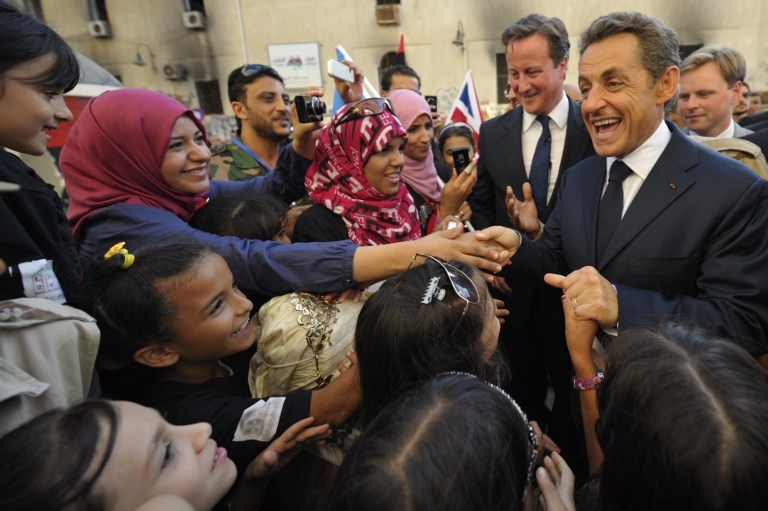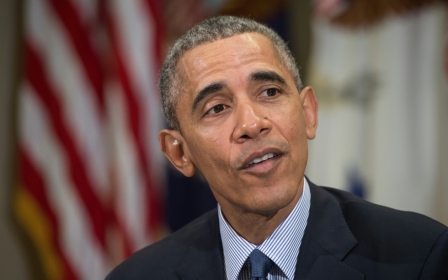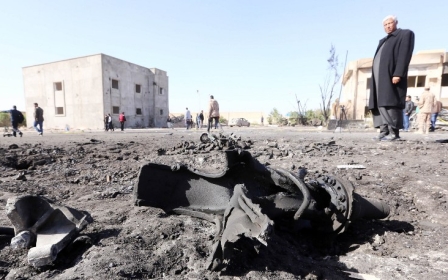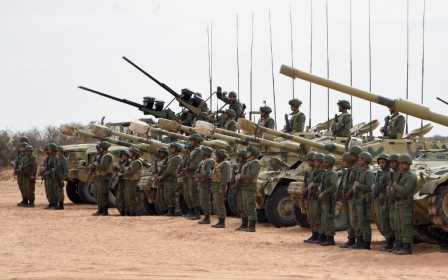Obama points finger at European leaders for Libyan 'mess'

White House officials have attempted to play down a diplomatic spat with the UK after US President Barack Obama suggested David Cameron's "distracted" leadership had contributed to the collapse of Libya into chaos after the NATO-led intervention in 2011.
In comments to the Atlantic magazine published on Thursday, Obama acknowledged that the country was a "mess" and suggested that the UK, France and Arab states had been "free riders" in an operation which he said had been "very cheap" in military terms.
Obama criticised both the British prime minister and former French president Nicolas Sarkozy, saying that he had expected more "follow-up" from the European countries after long-time leader Muammar Gaddafi was overthrown by rebels, because of the European leaders' closer proximity to Libya.
Cameron, he said, had been "distracted by a range of other things", while Sarkozy had been more interested in "trumpeting" his role.
Obama said he had encouraged European and Arab states to take leadership over Libya as part of an "anti-free rider campaign" and "in order to prevent the Europeans and the Arab states from holding our coats while we did all the fighting".
“So we actually executed this plan as well as I could have expected: We got a UN mandate, we built a coalition, it cost us $1 billion - which, when it comes to military operations, is very cheap. We averted large-scale civilian casualties, we prevented what almost surely would have been a prolonged and bloody civil conflict. And despite all that, Libya is a mess,” he said.
The Atlantic claimed that Obama had privately referred to the situation in Libya as a "shit show".
The US president also said that Cameron's "failure" to secure parliamentary support for military action in Syria in 2013 following the use of chemical weapons on civilians, widely blamed on Syrian government forces, had been a "major factor" in his decision not to intervene in the country's war.
The White House has moved quickly to smooth relations with Downing Street, issuing a statement on Thursday night highlighting the "special relationship" between Washington and London.
"Prime Minister Cameron has been as close a partner as the president has had, and we deeply value the UK's contributions on our shared national security and foreign policy objectives which reflect our special and essential relationship," said US National Security Council spokesman Edward Price.
"With respect to Libya, the president has long said that all of us - including the United States - could have done more in the aftermath of the Libyan intervention."
Cameron's office issued a statement saying that intervention in Libya had been "the right thing to do" and that the UK was "working hard to support the UN-led process to establish a stable and inclusive government".
But former British foreign secretary Malcolm Rifkind hit out at Obama, saying that the UK and France had led international efforts in support of Libyan rebels fighting to topple Gaddafi.
"To be frank, it's pretty rich coming from President Obama, because the Americans did far less than either France or the United Kingdom in helping get rid of that dictatorship," he said.
Oliver Miles, a former British ambassador to Libya, also rejected Obama's criticism of Cameron's leadership as "inaccurate".
"In fact, David Cameron said in September 2011, when the Libyan revolution had been successful and Gaddafi was overthrown, that the role of the foreign powers was now concluded and it was up to the Libyans, and I think that was the right thing to say," he told the BBC.
Addressing Obama on Twitter, Alistair Burt, a foreign minister at the time of the intervention, said that it was not the UK's retreat from the Middle East and North Africa that had been commented on when he had been in the region.
Barry Sheerman, of the British opposition Labour Party, said that Obama had been a "huge disappointment as a president and leader of free world".
But Christopher Meyer, a former British ambassador in Washington, dismissed the row as a "storm in a diplomatic teacup".
"The interest of the Obama piece in The Atlantic is far less in his comments on Cameron, far more in his views on the use of American power," Meyer added.
Herve Mariton, an MP for Sarkozy's Republican party in France, told the BBC that he would offer Obama a mirror.
“There is criticism that can be expressed towards the British, the French and indeed the Americans also," he said.
"All were too absent, too weak, and not concerned enough with what happened afterwards.”
Cameron and Sarkozy were cheered on a visit to Benghazi, the hub of the Libyan rebellion, at the end of 2011 after Gaddafi had been deposed and then killed. But the country has remained in political chaos ever since, with control of the country currently divided between two rival governments.
The row between Washington and London comes amid speculation that Western powers could once again be close to intervening in Libya to challenge the Islamic State (IS) group's control of coastal territory around Sirte in the centre of the country.
The US has already conducted air strikes against the group, against which it is also leading an international coalition in Syria and Iraq.
A report submitted to the UN Security Council this week said that IS had significantly expanded the area under its control in Libya and was enlisting military officers who formerly served under Gaddafi.
New MEE newsletter: Jerusalem Dispatch
Sign up to get the latest insights and analysis on Israel-Palestine, alongside Turkey Unpacked and other MEE newsletters
Middle East Eye delivers independent and unrivalled coverage and analysis of the Middle East, North Africa and beyond. To learn more about republishing this content and the associated fees, please fill out this form. More about MEE can be found here.




